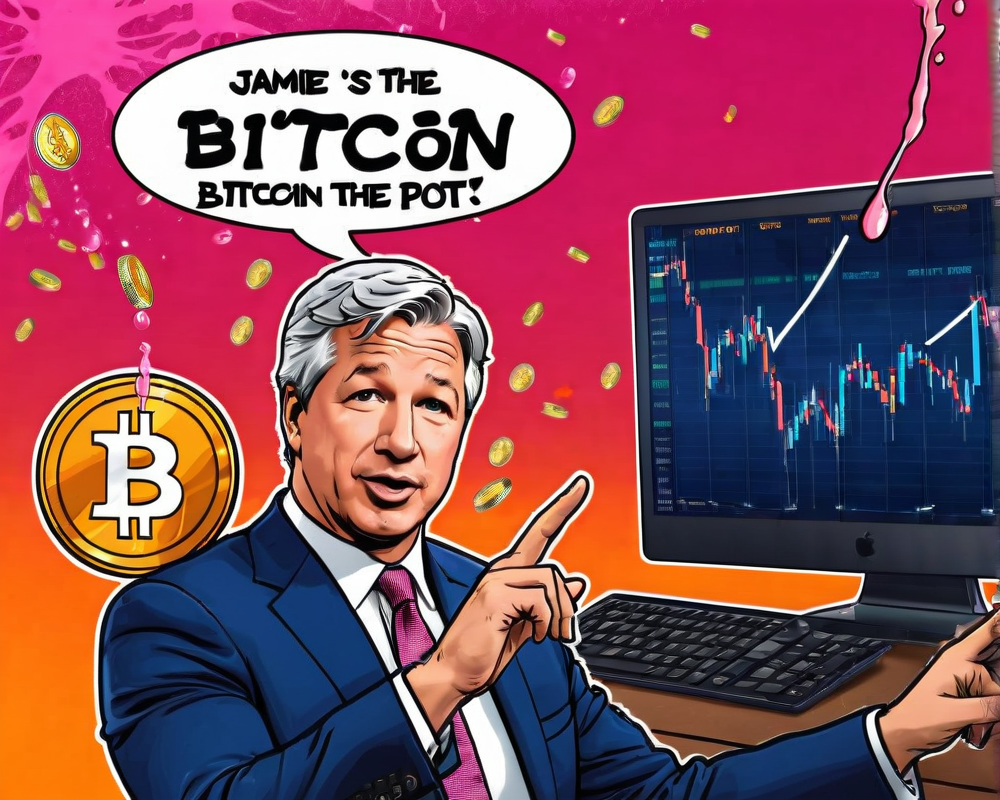The Unexpected Twist in Banking and Bitcoin
This week, the financial world buzzed with irony as JPMorgan CEO Jamie Dimon labeled Bitcoin a fraud. Meanwhile, his own bank’s Swiss arm found itself sanctioned for fraud by the Swiss regulator Finma. Talk about a classic case of pot calling the kettle black!
JPMorgan’s Fraud Fiasco
In June, the Swiss regulator, Finma, slapped JPMorgan with a ruling for money laundering. Naturally, the bank wasn’t about to take that lying down. So began a legal battle, with Dimon’s institution attempting to stop the publication of Finma’s judgment. But as the saying goes, what you resist persists. This month, the law said no to the bank, but the particulars of the case remain shrouded in mystery. It’s akin to watching your favorite TV drama unfold with an unfinished season finale!
A Laughing Matter for Bitcoin Advocates
To add salt to the wound, Bitcoin supporters are reveling in this delicious irony. Dimon’s dramatic claims in September that Bitcoin was akin to fraud sent its price diving. Now, watching this chain of events unfold, they can’t help but chuckle as the tables turn. Just think of it—Bitcoin enthusiasts sipping their brews, chuckling at the irony while Jamie Dimon holds a magnifying glass, trying to find the real fraud.
Andreas Antonopoulos Chimes In
Among those enjoying the punchline is cryptocurrency expert Andreas Antonopoulos. During a Q&A session, he remarked, “Jamie doth protest too much, methinks.” With cutting wit, he highlighted how Dimon’s insistence on Bitcoin’s illegitimacy now looks quite, well, peculiar given his bank’s recent troubles.
The Bigger Picture: Trust and Transparency
This situation raises an essential question about trust in financial institutions. If major banks like JPMorgan can find themselves in such predicaments, what confidence can consumers place in them? Meanwhile, Bitcoin proponents argue that the decentralized nature of cryptocurrencies brings transparency. As Dimon points a finger at Bitcoin, three more are pointing back at his own institution!
A Silver Lining?
Perhaps this ironic twist could lead to greater scrutiny on banking practices. In a world where transparency is becoming essential, it’s questionable if traditional banks can maintain their status quo amidst rising favor for digital currencies. Perhaps, just maybe, Dimon’s musings will lead to a renaissance of responsibility in banking.
Conclusion: Who’s the Real Fraud?
As the dust settles on this ironic drama, it’s clear that accountability is needed on all fronts. While Dimon throws shade at Bitcoin, his bank continues to navigate troubled waters. In the end, the real question remains: who’s the actual fraud? Only time, and perhaps a well-crafted legal opinion, will tell.















+ There are no comments
Add yours